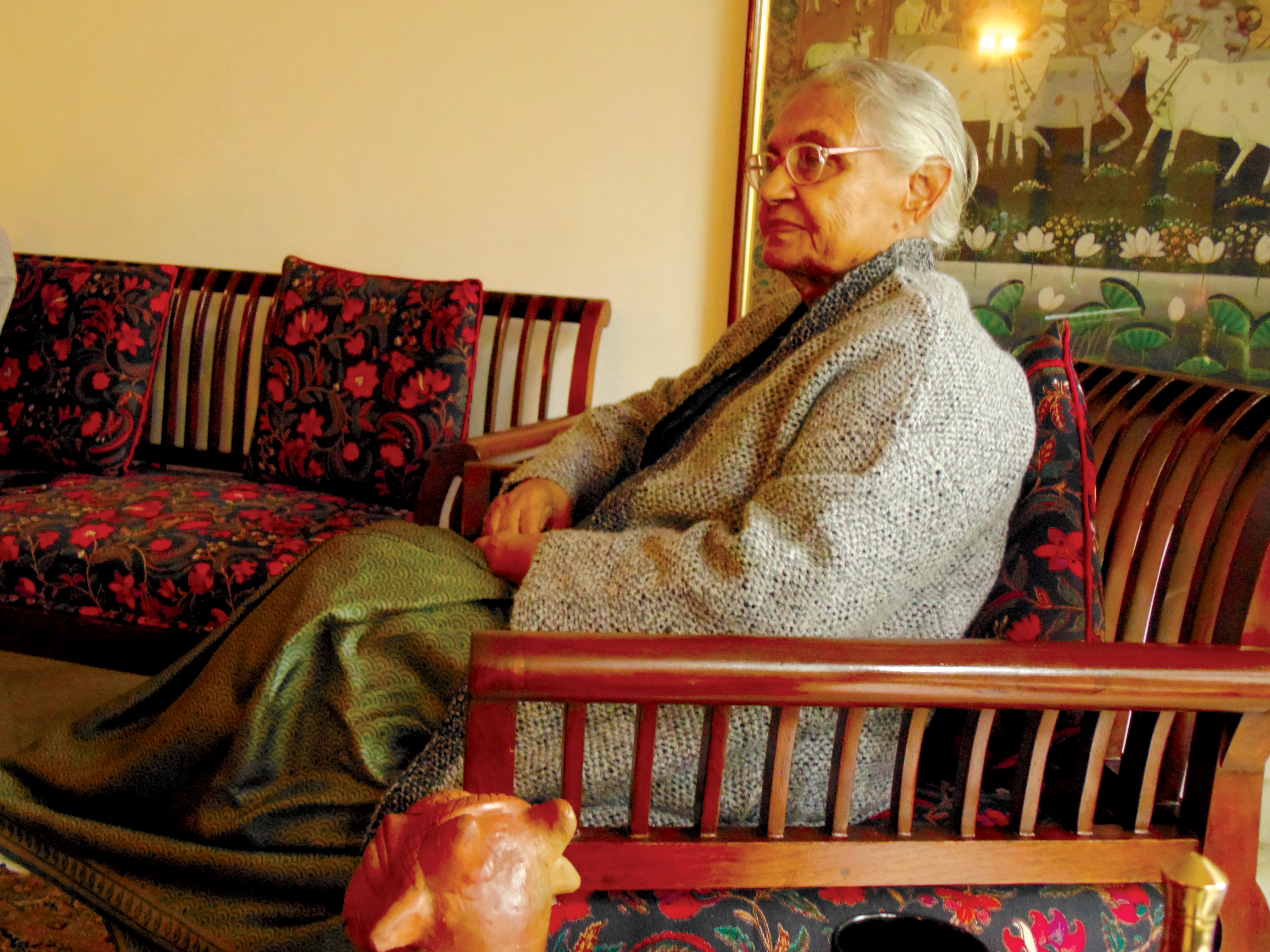She was at the helm for all my growing up years, making the city a better place for future generations
As a journalist, one should be able to look beyond the personality to be able to decipher what the interviewee is all about. For me, this was to be tested while encountering the chief minister of my childhood and growing up years in Delhi — Sheila Dikshit. She was in power for 15 years, and thus I was always aware of her during my adolescence.
When I went to meet her for an interview, it had been more than five years since she lost stunningly in 2013’s Assembly elections. It was in the cold of Delhi’s December that I reached her home 15 minutes before our scheduled morning meeting.
I had expected security guards and various other barriers to block my way but there was no such fuss around her house. As I walked in apologetically for coming in early, I found the lady sitting at the dining table sipping tea.
She had a quintessential air of authority about her but not in an unbecoming way — unusual for someone who had once wielded so much power and enjoyed so many privileges.
She asked me to take a seat on the lounge sofa, offered me tea, which I sipped on gingerly, in between questions about her present, past and future.
The interview took place before Dikshit was asked to take up the mantle of Delhi Congress president, and much before her name as the candidate from North East Delhi constituency was put in the fray.
When the news was reported, these developments left me slightly surprised. The way she spoke of her life, I had not expected her to enter electoral politics again. In fact, when I asked her directly if she would, her answer was “No, I haven’t thought of it at all”.
So, was it that she just didn’t want to say much, in case her party did not put her forward — or were her answers indicative of the fact that she had come to terms with taking a backseat?
Her responses hinted at a life content with writing (she had just finished translating her autobiography into Hindi), reading books and spending time with her family.
She pointed out how she had had no time for her family while in power and was happy now that she did.
The interview left doubts springing up in my mind about her future in politics, and her own intentions — she had also mentioned health issues which had kept her away from active politics for some months. When I had pressed to know her role in the Congress and thus her future, she answered curtly, “I still attend all the meetings. When my party needs me, I am there”.
Her loyalty in the response above defines what kind of a leader she was and how she felt about her job, which was being a member and leader of the Congress party.
So perhaps due to perceived lack of leadership in Delhi, Congress decided to bank on the person who had successfully remained in power for three terms at the Capital. A woman who, at 81, was strong, loyal, and full of ideas of what the city required in the “changing times,” as she called it.
Dikshit really believed Delhi had become an unliveable city, and that the present government had to do much to change this. It was as if she was able to experience the city as a lay person, having been out of power for a few years. That she could relate to the complaints about traffic jams and hooliganism.
Asked exactly what must be done, she said that it was up to her successor, Chief Minister Arvind Kejriwal. She didn’t display much negativity towards him. Even when I persisted
with trying to get a response on him, she only said, “Good
luck to Delhi. They have chosen him”.
She was, as many people call her, a true statesman who believed there should be civility even in interactions with political opponents.
After the interview had been taken, and photos shot — for which I asked her to pose — I gathered my things and told her I hoped to see her again.
As I walked away, she called out to me. I had accidentally left my scarf behind. My awkward attempt at a joke made me look like a stalker, as I said, “Oh that would have meant me coming back here” with a big grin. That got her to laugh an awkward laugh as I bid goodbye to the former chief minister.





